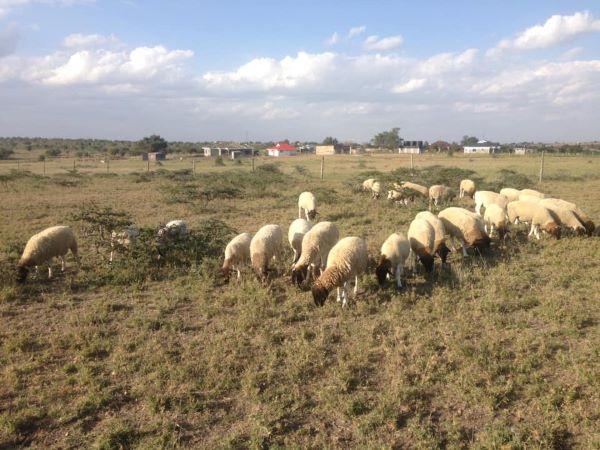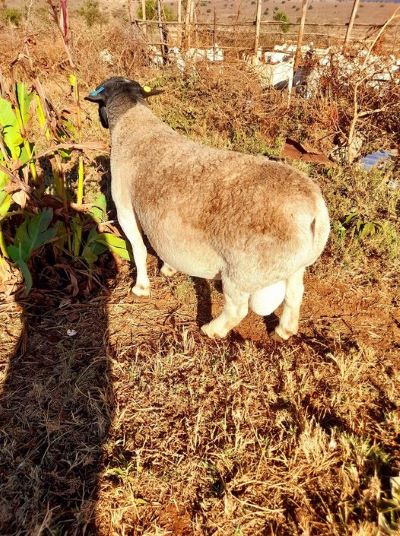
The weather patterns in Kenya are changing drastically, a situation that has forced Kenyan farmers especially those in the rangelands to become adoptive to continue reaping from livestock rearing.
Among others, parts of dry northern Kenyan rangelands where sheep farming is pre-dominant, Dorper sheep is becoming a favourite among farmers thanks to its ability to endure the present climate change vagaries.
“I faced out the red Maasai sheep and started Dorper sheep keeping after learning of its resilience and its ability to retain its body weight even during drought from fellow farmers since 2003,” said Hezron Kiprono, a farmer from Kenya’s Baringo County.
The breed developed as a cross between Dorset Horn and the Blackhead Persian sheep in South Africa years back has black head and white body making it stand out as it grazes in the field and one can easily identifies it out from far.
It was introduced in Kenya by the Kenya Agricultural & Livestock Research Organization (KALRO) about a decade ago, but it is only until recently when the weather pattern became unpredictable that Kenyan farmers started to adopt the sheep.
In addition to its survival capabilities a wide range of climatic and weather conditions, Dorper sheep matures faster, and its meat is tender and delicious.
In fact, according to Animal Genetic Training Resource (AGTR), the breed is now making a huge contribution to mutton production worldwide hence the need for more breeding services to satisfy the growing demand from farmers and consumers.

Mutton is a delicacy in Kenya, whose demand is insatiable, with most Kenyan eating it grilled, commonly known as nyama choma which is a big venture in Nairobi and other towns.
According to Hezron, in just six months the sheep can produce up to 40kg of tender meat which can be bought at Sh350 per kilo.
“Dorper lamb can reach a live weight of about 36 kg at the age of 3-4 months. At this stage a ram goes for not less than Sh10,000.”
Currently, the farmer who started with 10 ewes now has over 60 sheep. He spends Sh2,000 every three months on deworming, Sh250 per week to buy acaricides and veterinary consultations costs him Sh1,000.
He says, selling a ram for breeding is much profitable than selling it for meat since he sells a fully grown ram ready to serve at Sh20,000 while a fully grown ewe goes at Sh25,000.
Farmers who cannot afford the sheep are crossbreeding them with local ones like the Red Maasai type, also getting a drought-tolerant breed.
However, the market cost will be lower than the pure breed since a cross with indigenous breed sells at Sh15,000-20,000 for a ram and Sh10,000 for an ewe.
Despite Dorper sheep’s long breeding season which is not seasonally limited and that lambs can be dropped at any time of the year, there are few breeders in Kenya making the venture of good returns.
According to Jeremiah Sein, Dorper Sheep Breeders Society of Kenya treasurer there are only a handful of breeders in Rift Valley region who are registered and licensed by the society.
“The importance of registering and licensing our members is to help in data keeping which further helps us in avoiding inbreeding of the animals,” said Sein.
Most breeders prefer producing and raising rams which they sell out to farmers for breeding instead of letting ewes from other farmers into their farms. This is to avoid the spread of diseases.








[…] Credit: Source link […]
Comments are closed.